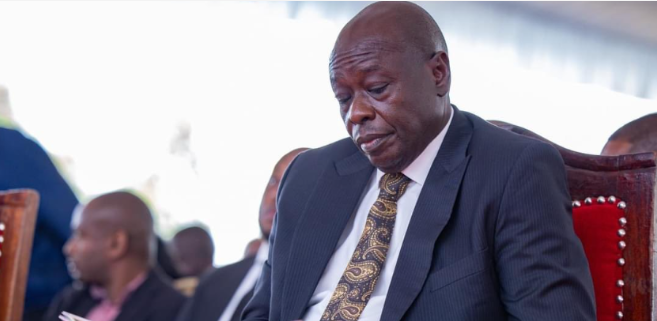Gachagua’s fall a cautionary tale on arrogance
By Stephen Ndegwa, October 31, 2024In a world where power often seems untouchable, the sudden fall of Rigathi Gachagua serves as a stark reminder of how fleeting and fragile power can be. When the Senate upheld his impeachment, the humbling experience provided a powerful lesson in the vanity of power and the inevitable role of karma.
Gachagua’s rise to power was marked by his fierce rhetoric and relentless attacks against former President Uhuru Kenyatta. He seemed to thrive on controversy, belittling his opponents and portraying himself as the new force in Kenyan politics. His confidence in his political prowess led him to believe that his power was unassailable and his position beyond reproach.
But his impeachment has dramatically altered his trajectory. What seemed like an unshakeable grip on power has now crumbled, leaving Gachagua to confront the harsh reality that the same political machinery that propelled him to prominence can swiftly dismantle his influence. The spectacle of his downfall is a testament to the idea that karma has a way of catching up with those who wield power arrogantly.
Karma, in its simplest form, is the principle of cause and effect. It teaches that actions, whether good or bad, will inevitably return to us in some form. For Gachagua, the harsh words he once directed at Kenyatta and others now echo back to him, amplified by the very circumstances he once dismissed as impossible. His impeachment is not merely a political defeat. It is a manifestation of the consequences of his past actions, a moment where the universe seems to be balancing the scales.
This lesson in humility is universal, extending beyond the corridors of political power to anyone who has tasted success in any field, be it business, sports, academia or the arts. It is easy to fall into the trap of believing that one’s achievements grant them immunity from accountability or that success elevates them above reproach. But true greatness is measured not by how high we rise, but by how gracefully we conduct ourselves both in victory and in defeat.
Humility in success is what prevents the truly accomplished from becoming ensnared by their own ego. It is a reminder that no matter how high we climb, we are always subject to the same laws of life that govern everyone else. The best leaders and the most successful individuals are those who understand that their achievements are not solely a reflection of their own brilliance, but also the result of grace, opportunity, and the contributions of others.
Gachagua’s story is a powerful example of what happens when humility is neglected in the pursuit of power. His rise and subsequent fall illustrate the timeless truth that pride often precedes a fall and that arrogance will always be met with its reckoning. His journey from triumph to impeachment should serve as a cautionary tale for anyone who believes that their position or status places them above the consequences of their actions.
The lesson here is profound: power is fleeting, but humility is enduring. Gachagua’s impeachment is a reminder that while the trappings of authority may come and go, the legacy one leaves behind is shaped by their character and how they treat others when they are at the pinnacle of success.
In the end, the downfall of Gachagua is not just a personal defeat; it is a moral victory for the values of humility and accountability. His experience serves as a reminder that karma is ever vigilant, and no amount of power can shield one from its effects. For those in politics, business, or any other career, let this be a lesson: wield power with humility, for the forces of karma and the laws of life spare no one.
— The writer is a PhD student in International Relations-
More Articles

